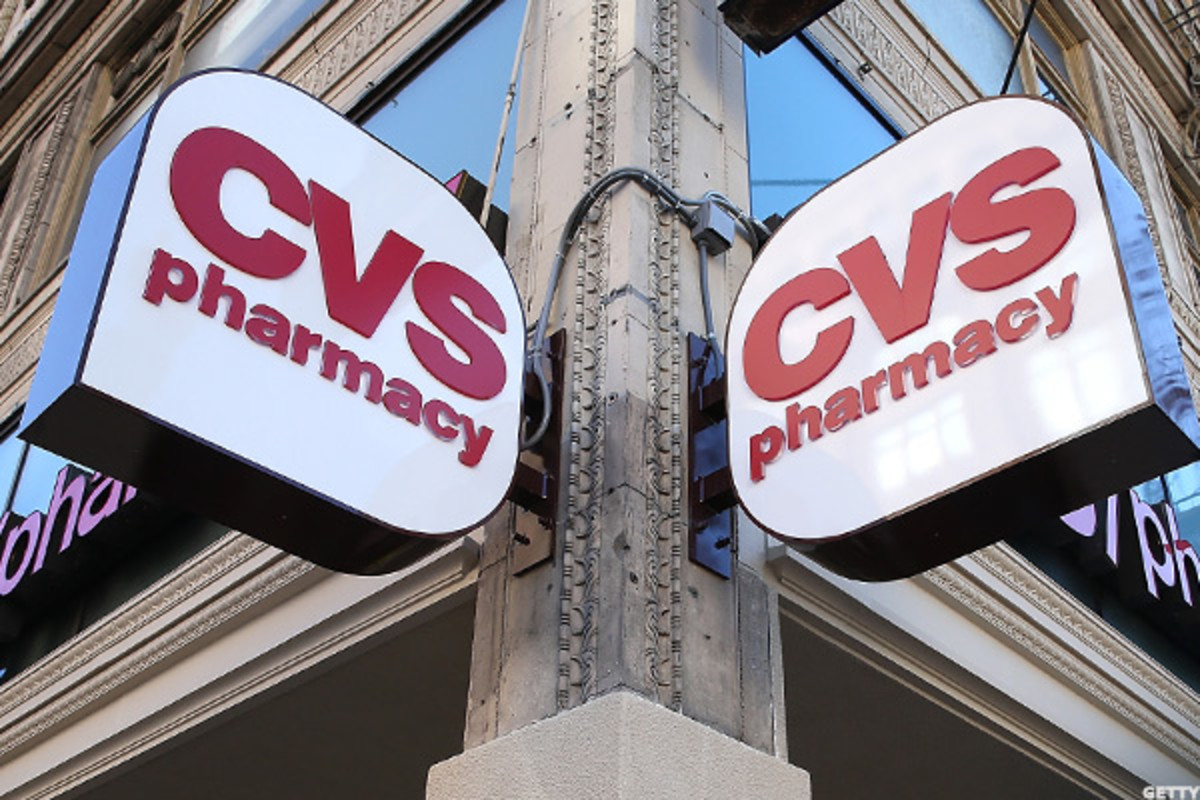
These are trying times for the healthcare industry, but Karen Lynch says her company has gone through tough times before.
"We have a track record of successfully navigating complex industry pressure, and we’ll continue to demonstrate our resilience," the president and CEO of CVS Health told analysts during the company's earnings call. "We will provide updates throughout the year on these efforts."
Related: CVS stock crashes after Aetna Medicare Advantage hit
CVS Health, which missed Wall Street's first-quarter earnings expectations on May 1, slashed its full-year profit forecasts amid soaring medical costs and the expected impact of changes to Medicare Advantage reimbursements.
Private plans have been part of the Medicare program since its inception in 1966. Medicare Advantage enrollment began to surge in 2010 when payment provisions in the Affordable Care Act created incentives for improved care quality.
CVS and its rivals in the health insurance sector, including UnitedHealth Group (UNH) and Humana (HUM) , are seeing huge increases in medical payouts as more Americans, typically those of retirement age, find the time and space for elective surgeries in hospitals that were previously overwhelmed by Covid patients.
As of 2023, about 50% of Medicare beneficiaries were members of Medicare Advantage plans, and nearly all beneficiaries had access to at least one plan.

Analyst: 'CVS has been punished enough'
"When we last gave 2024 guidance, our outlook assumed normalized Medicare Advantage trends on top of the elevated baseline we experienced in the fourth quarter of 2023," Lynch told analysts. It is now clear that the first quarter of 2024 Medicare Advantage trends are notably above this level."
Lynch said that, like others in the industry, the company's visibility in the quarter was impaired by the February cyberattack on Change Healthcare, a division of UnitedHealth Group, which shut down the largest healthcare payment system in the U.S.
Related: Analysts revisit Humana stock price targets amid Medicare Advantage hit
The company posted first-quarter earnings of $1.31 per share, down from $2.20 per share a year ago, and missing the FactSet consensus of $1.70 per share.
Revenue totaled $88.44 billion, up from $85.3 billion a year ago, falling short of FactSet’s call for $89.32 billion.
The company forecast 2024 adjusted earnings of at least $7 per share, down from a previous guidance of at least $8.30 per share. FactSet’s called for earnings of $7.33 per share.
CVS shares tumbled after investors heard the news, and shares were down 2.7% to $54.82 at the last check.
“CVS has been punished enough,” said TheStreet Pro’s Bruce Kamich. “It has made a ‘round trip’ on charts and reached major downside price targets. This does not make the stock a buy, but it does suggest that the worst could be behind it.”
Meanwhile, several analysts issued research reports and adjusted their stock price targets for CVS.
Truist lowered the firm's price target to $66 from $90 but kept a buy rating on the shares, citing the first-quarter earnings miss and guidance cut driven by higher Medicare utilization
The results are disappointing, and corrective steps in Medicare Advantage will take time, but Truist remained positive on CVS Health's collection of assets.
Raymond James lowered the firm's price target on CVS Health to $65 from $85 and kept an outperform rating on the shares.
Analysts see tough times ahead
The firm said CVS's first-quarter results were worse than expected, driven by underperformance in the Health Care Benefits segment.
Raymond James said management noted that medical costs were $900 million above expectations. $500 million is attributable to seasonal factors that shouldn't persist, while $400 million is expected to be structural and persist going forward.
More Wall Street Analysts:
- Analyst unveils new Nike price target ahead of big summer for sports
- Analysts weigh in on Google-parent Alphabet’s stock after cloud event
- Analysts revamp Disney stock price target after proxy fight
Bank of America lowered the firm's price target on CVS Health to $77 from $95 and kept a buy rating on the shares.
The firm said the current valuation implies investors have substantial doubts the company can grow from here, but it thinks the new $7.00-plus earnings per share guidance, which contemplates a 2%- 3% Medicare Advantage margin, "provides no option value for any improvement over time."
While the near-term set-up is "clearly challenged from higher utilization," and the "path forward is unlikely to be smooth or linear," the firm argued that the risk/reward skews positive at current levels.
Barclays also lowered the firm's price target on CVS Health to $63 from $78 and kept an equal weight rating on the shares.
The company's first-quarter results reset CVS's Medicare Advantage margins materially lower and elongate the path back to target margins, which may take four years, the firm said.
And UBS analyst Kevin Caliendo downgraded CVS Health to neutral from buy with a price target of $60, down from $85.
Caliendo said he has limited visibility into the "necessary improvements needed" in CVS's Medicare Advantage cost trend and other segments of the business that shape the current guidance.
The analyst said he believes the softer first-quarter earnings report creates a wider range of outcomes in bridging to $7 in earnings per share for the full year. Caliendo said getting to low-double-digit earnings growth in 2025 will increasingly depend on capital deployment.
Related: Veteran fund manager picks favorite stocks for 2024







